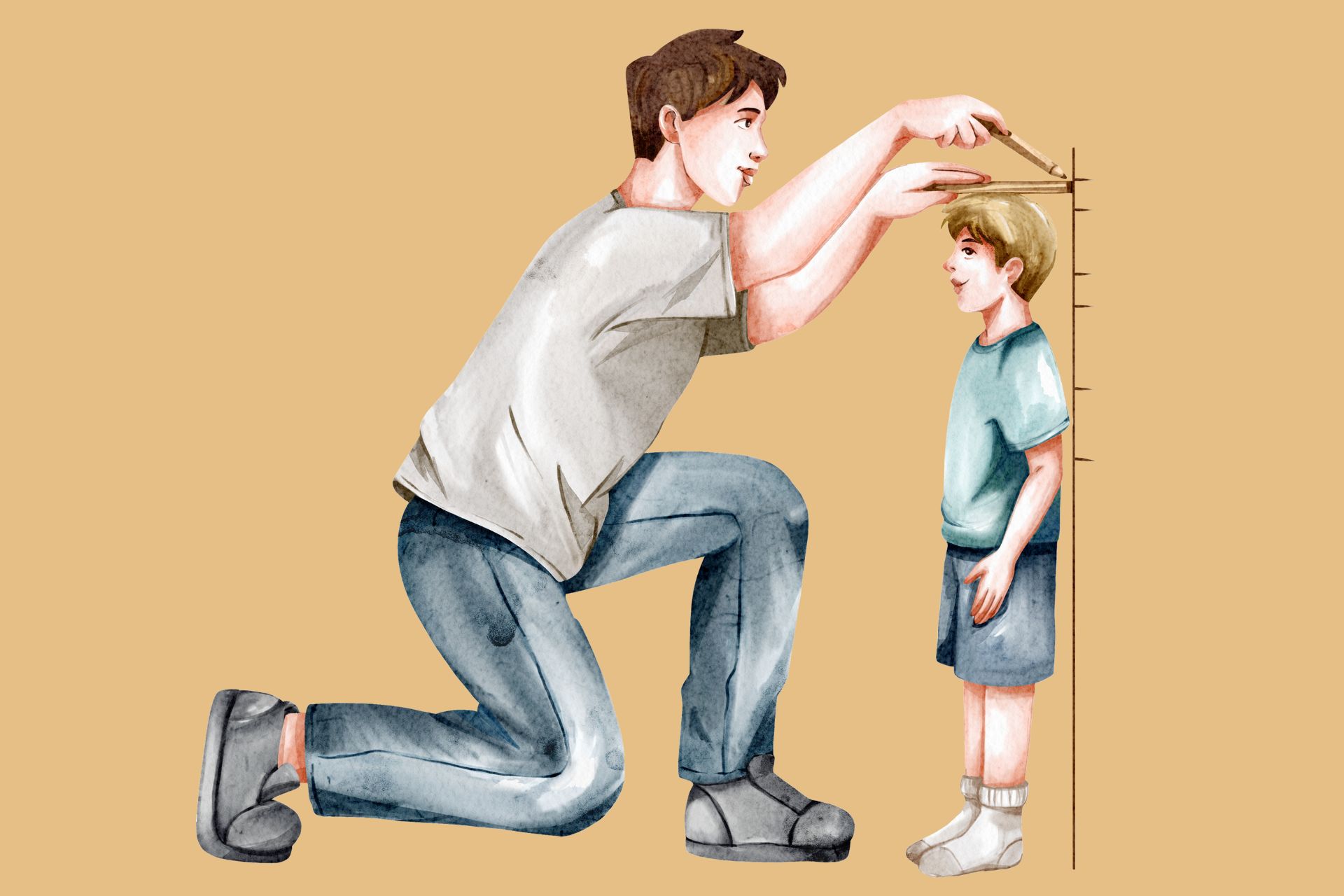When Do Men Stop Growing? Understanding the Timeline of Male Physical Development
Have you ever caught yourself wondering, “When do I actually stop growing?” It’s a common curiosity, especially during those years when you seem to shoot up in height overnight or when you compare your stature to others. The growth process in men is a fascinating journey influenced by a blend of genetics, nutrition, and overall health. This article addresses this topic and unpacks the stages of growth so you can better understand when men typically stop growing and what factors are at play.

The Journey of Growth: From Boys to Men
The Starting Line: Childhood
From the moment you were born, your body embarked on a growth journey. Childhood is marked by steady and gradual growth. The pace of growth during these years can vary significantly from one individual to another, influenced by factors like family genetics and nutritional status.
Acceleration: The Teenage Growth Spurt
The teenage years are when things get interesting. This period is often characterized by the growth spurt, a phase of rapid physical development. Most boys experience this surge in growth between the ages of 12 and 16. It’s the time when you might outgrow your clothes at an astonishing rate and start seeing eye-to-eye with your parents.
Hormones at Play: The Role of Testosterone and Growth Hormone
Testosterone and growth hormone play crucial roles during this phase. Testosterone, which increases significantly during puberty, contributes not just to height but also to muscle development, voice deepening, and facial hair growth. Growth hormone, on the other hand, fuels overall growth and development.
The Finish Line: When Does Growth Cease?
So, when do men stop growing? In most cases, men finish growing in height by their late teens or early twenties. The growth plates in the bones, known as epiphyseal plates, fuse and close during this period, marking the end of the height increase. For many, this happens by the age of 18, but it can extend up to the age of 21 or 22 for some.
Factors That Influence Growth
Genetics: The Blueprint of Your Growth
Your genes, inherited from your parents, are the primary determinants of how tall you will be. If your parents are tall, chances are you might be tall as well. However, genetics can be full of surprises, so exceptions are not uncommon.
Nutrition: Fuel for Growth
Nutrition plays a pivotal role in growth. A balanced diet rich in calcium, protein, and vitamins is essential for proper development. Malnutrition or poor dietary habits can stunt growth, while a nutritious diet can help you reach your full genetic potential.
Health and Lifestyle: Supporting or Hindering Growth
Overall health and lifestyle choices also impact growth. Chronic illnesses, hormonal imbalances, or poor lifestyle choices during childhood and adolescence can affect growth. On the flip side, regular exercise and adequate sleep promote healthy growth and development.
Medical Conditions That Can Affect Growth in Men
- Hormonal Disorders:
- Growth Hormone Deficiency: Leads to stunted growth and delayed puberty.
- Hypothyroidism: Results in slower growth rates and delayed puberty.
- Hyperthyroidism: May cause accelerated bone age and potentially shorter adult height.
- Genetic Conditions:
- Noonan Syndrome (male equivalent of Turner Syndrome): Often results in shorter stature and delayed puberty.
- Marfan Syndrome: Typically leads to unusually tall stature with elongated limbs.
- Achondroplasia: The most common form of short-limbed dwarfism, leading to shorter stature.
- Chronic Diseases:
- Juvenile Idiopathic Arthritis: Can slow down growth and, in severe cases, lead to stunted growth.
- Celiac Disease: Leads to nutrient malabsorption and can cause delayed growth.
- Cystic Fibrosis: Impedes growth due to malabsorption and chronic respiratory infections.
When to Consult a Healthcare Professional
If you’re concerned about your growth or development, consult a healthcare professional. They can assess your growth pattern, check for any underlying health issues, and provide guidance tailored to your individual needs. It is important to remember that height is just one aspect of your physical development and doesn’t define your capabilities or worth.
Key Takeaways
- Understanding the Timeline: Men typically stop growing in height by their late teens to early twenties.
- Hormonal Influence: Testosterone and growth hormone play significant roles in the growth process during puberty.
- Genetics: Your genetic makeup is a major determinant of your final height.
- Nutrition Matters: A balanced diet is crucial for reaching your full growth potential.
- Health and Lifestyle: Overall well-being and lifestyle choices can influence growth.
- Seek Professional Advice: Consult a healthcare provider if you have concerns about your growth or development.
Growth is a complex process influenced by a myriad of factors. While the end of the growth phase might signify the closing of one chapter in your physical development, it’s also the beginning of new phases of growth and development in other areas of life. Embrace these changes with confidence and curiosity, knowing that growth is not just about height but about evolving as a whole person.
